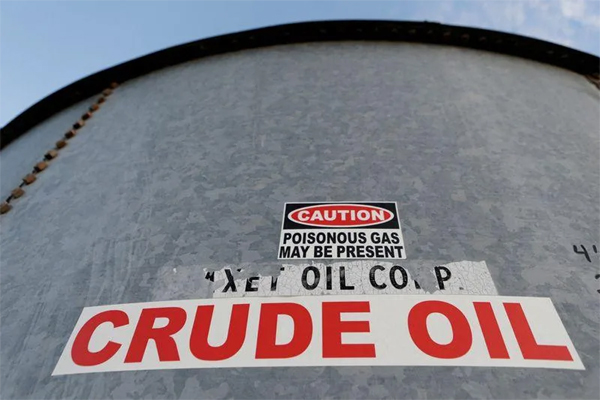
By Williams Watts/ MarketWatch
NEW YORK
EnergiesNet.com 05 11 2022
Oil futures ended lower Tuesday, with the U.S. benchmark sliding back below $100 a barrel for the first time in nearly two weeks amid worries about the global economic outlook and COVID-19 lockdowns in China alongside a persistently strong U.S. dollar.
Meanwhile, the average U.S. pump price for regular gasoline hit a record above $4.37 a gallon on Tuesday, according to AAA.
Price action
- West Texas Intermediate crude for June delivery CL.1, 2.61% CL00, 2.57% CLM22, 2.54% dropped $3.33, or 3.2%, to close at $99.76 a barrel on the New York Mercantile Exchange, after trading below $100 for the first time since April 27.
- July Brent crude BRN00, 2.55% BRNN22, 2.57%, the global benchmark, fell $3.48, or 3.3%, to settle at $102.46 a barrel on ICE Futures Europe.
- June natural gas NGM22, 1.23% bounced 5.1% to $7.385 per million British thermal units after a 12% tumble on Monday.
- June gasoline RBM22, 1.06% fell 2.8% to $3.5415 a gallon.
- June heating oil HOM22, 1.87% rose 2.5% to $3.9322 a gallon.
Market drivers
Oil extended a slump seen Monday following a round of weak Chinese trade data that underlined worries about the country’s COVID-19 lockdowns and their impact on crude demand. A steep selloff for equities, which saw the S&P 500 SPX, +0.25% post its lowest finish since March 31, 2021, added to pressure on crude.
U.S. stocks bounced in early trade Tuesday but then turned mostly lower.
The inability of the European Union to quickly agree to a plan for implementing a ban on Russian oil imports has also weighed on the market, said Warren Patterson, head of commodities strategy at ING, in a note.
“It looks as if the latest sanction package will need to be watered down in order to be approved by all members. Already, there are reports that the EU has dropped part of the proposal which would have banned EU-owned tankers from shipping Russian oil to destinations outside the EU,” he wrote.
Hungary has continued to demand more in the way of assistance to help it transition away from Russian energy. News reports have said that a proposed compromise would allow Hungary and other Eastern European EU members to phase out Russian oil by the end of 2024, as opposed to the end of the year.
French European Affairs Minister Clement Beaune on Tuesday said he thought a deal could be completed this week, noting that French President Emmanuel Macron was due to speak to Hungarian leader Viktor Orban, Reuters reported.
Meanwhile, the ICE U.S. Dollar Index DXY, -0.25%, a measure of the currency against a basket of six major rivals, rose 0.3%, trading near the 20-year high set in early trade Monday. A stronger dollar is a negative for commodities priced in the unit, making them more expensive to users of other currencies.
marketwatch.com 05 10 2022







